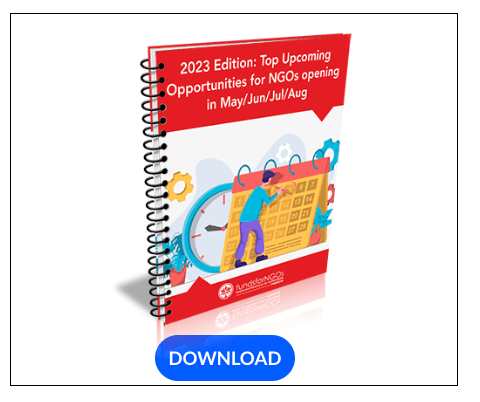
Deadline: 26-Jun-23
The International Development Research Centre (IDRC) is pleased to announce a call for full proposals as part of the FutureWORKs initiative, for the selection of regional research hubs intended to develop and lead a regional research network to advance skills and policies for an inclusive and sustainable future of work.
This call is a joint initiative of the Education and Science and the Sustainable Inclusive Economies programs. It seeks to leverage past IDRC investments on challenges in the Future of Work, Women’s Economic Empowerment and skills development to create a multi-regional initiative supporting innovation research to advance skills for the future of work and promote decent work.
Objectives
This initiative supports high-quality, innovative and gender responsive research that addresses key Future of Work challenges and opportunities to advance skills, strengthen social protection and promote decent work.
Specific objectives:
- Support Southern-led research on the impact of digital technological advancements such as AI, and the transition to a low carbon economy on future of work and deliver innovation policy solutions.
- Foster networks for knowledge sharing and peer learning, through the development of future of work research hubs in regions where IDRC operates.
- Support knowledge mobilization for uptake by engaging policymakers, private sector actors, civil society and worker’s representatives across the skills ecosystem to help co-develop and utilize evidence in decision making, as well as scale good practices.
Priorities
- Foster high-quality research: Develop an integrated research program examining the extent and drivers of labour markets disruption and the contribution of training and government policies to supporting inclusive labour market outcomes. Research is expected to address labour supply challenges by equipping women and youth with skills that position them for the jobs of tomorrow; demand challenges by creating greater economic opportunities for women and youth; linkage challenges to connect youth and women to with industry for better economic opportunities; and unlocking decent, green job opportunities, investment in new skills, the inclusion of workers and communities in a low carbon development trajectory.
- Lead training and capacity strengthening strategies: Promote the advancement of next-generation researchers (masters and doctoral training / post-doctorate, and those in vocational institutions). Strengthen the ability of firms, industry associations, training and vocational institutions and government to understand and act on emerging evidence through a range of activities (e.g., participation in implementation research projects, workshops, training events, policy dialogues, peer-learning) and appropriate reskilling measures that are needed to drive the just transition.
- Foster sustained networking and cross-sectoral partnerships: Develop and sustain a functioning research network that spans borders and disciplines, and is informed by and engages with non-academic actors. Carry out peer learning and knowledge exchange activities and foster collaboration across projects.
- Ensure knowledge Mobilization: Help position policymakers, private sector actors, civil society and workers representatives across the skills ecosystem to utilize evidence in decision making and scale good practices in relation to countries pursuit of a low carbon economy.
- Hubs will determine their exact role and structure. Proposing organization(s) will provide information on how they will add value to the regional networks to ensure that its outputs and outcomes are greater than the simple sum of individual research projects.
- The hubs will play an important role as part of a global network of IDRC-supported organizations working on skills for an inclusive and sustainable future of work. This means that hubs are expected to work with each other, not just independently, aiming to move the needle on commonly identified objectives per a joint theory of change. For example, they anticipate the need for hubs to collectively think about critical issues such as approaches to gender equality and inclusion, common challenges related to drivers of change, and avenues to policy uptake.
Focus Areas
- Climate-Resilient Food Systems
- Democratic and Inclusive Governance
- Education and Science
- Global Health
- Sustainable Inclusive Economies
- Gender equality and inclusion are central to all their programs.
Funding and duration
- Regional research hubs can submit budget requests of up to a maximum of CAD 1,700,000.
- IDRC is expecting to fund 5 regional research hubs, depending on quality, in the following regions: Asia, sub-Saharan Africa (2), MENA and LAC. The initiative’s duration is a maximum of 5 years, including all research activities and final reporting.
- IDRC reserves the right to fund additional proposals from this call if/when more funding becomes available.
- IDRC is under no obligation to issue any funds prior to the applicant returning a fully executed Grant Agreement to IDRC.
- All grants are subject to sufficient funds being made available to IDRC by the Parliament of Canada.
- IDRC reserves the right to cancel this call for proposals at any time without prior notice and/or to not issue any grants under this process.
Eligibility Criteria
- Only full proposals that meet the eligibility criteria will be considered. The following eligibility criteria apply:
- This call invites proposals from individual organizations or consortiums headquartered in LMICs in the respective region (MENA, LAC, Asia, SSA). If taking a consortium approach, it must be composed of organizations working in the regions of focus.
- This call for proposals is open to non-profit research organizations and higher education institutions. Consortia may involve government and UN agencies, but these partners are not eligible to be the lead institution or to have salary costs included. This call is not open to individuals.
- International organizations with offices in LMICs playing a leadership role in this proposal are eligible.
- A demonstrated track record leading and supporting high quality research in the FOW field, through a strong publication record.
- Demonstrated knowledge of regional priorities in the FOW field is a must.
- Proven high capacity to support networks or partners, including demonstrated experience fostering knowledge exchange and learning opportunities, both virtually and in person.
- Demonstrated experience through a record of publication in conducting gender analysis and ensuring the integration of gender, equity, and inclusion considerations in all project activities.
- Proven administrative capacities, including demonstrated expertise in managing research projects, ability to disburse funding to other organizations and in different countries.
- Ability to work in English and the working languages of the region (e.g., Spanish for LAC, French for West and Central Africa) at a minimum. Other languages are considered an asset.
- Applicants must have independent legal status (or “legal personality”) and be capable of contracting in their own right and name, receiving and administering funds, and have authority to direct proposed project activities. Applicants must be able to demonstrate legal status through written documentation. Legal status will only be reviewed if and when applicants are selected following technical selection.
- Only complete applications are eligible.
For more information, visit International Development Research Centre.
